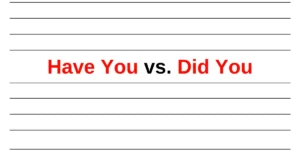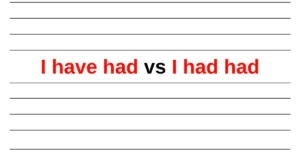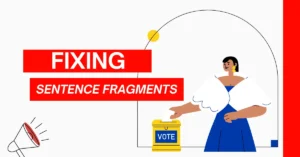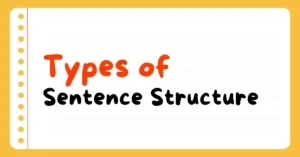Good grammar makes a big difference in how well you speak and write in English! Whether you’re a beginner or just want to brush up on your skills, these 10 simple tips will help you improve. Grammar can seem tricky, but don’t worry! With practice and attention to detail, you’ll be on your way to mastering English in no time.
Tips to Improve Your Grammar

1. Watch Out for Apostrophes!
Apostrophes can change the meaning of a sentence!
- Possessive case (shows ownership): This is Sarah’s book.
- Contractions (shortened words): It’s raining today! (It’s = It is)
Be careful with its vs. it’s and their vs. they’re!
2. Use a Comma After Introductory Phrases
When starting a sentence with a phrase, always use a comma!
Examples:
- After a long day, Anna likes to watch TV.
- In the morning, I drink coffee.
3. Learn Common Homophones
Homophones sound the same but have different meanings!
Examples:
- Too (also) vs. Two (the number 2)
- Your (possession) vs. You’re (You are)
- Accept (to receive) vs. Except (excluding)
4. Understand -able vs. -ible
Knowing how to use these word endings will help your spelling!
Examples:
- If the root word makes sense alone, use -able: comfortable, enjoyable, fashionable.
- If the root word does not make sense alone, use -ible: visible, divisible, incredible.
5. Use the Right Articles: ‘A,’ ‘An,’ or ‘The’
- A/An = For general things: I saw a dog.
- The = For specific things: The dog is friendly.
Examples:
- She called a doctor. (Any doctor)
- She called the doctor next door. (A specific doctor)
6. Master Appositives (Extra Information)
Appositives give extra details about a noun. Use commas for non-essential information!
Examples:
- The TV show Brian O’Brien was canceled. (Essential)
- Brian O’Brien, a popular TV show, was canceled. (Non-essential)
7. That, Who, and Which – Use Commas Wisely
- Essential: People who work hard succeed. (No commas needed)
- Non-Essential: Mr. Smith, who loves soccer, coaches our team. (Needs commas!)
8. Use Semicolons to Link Sentences
A semicolon (;) links two full sentences that are closely related.
Examples:
- Emma loves reading; she visits the library often.
- It was late; we decided to go home.
9. Countable vs. Non-Countable Nouns
- Countable (many, few): cars, books, houses.
- Non-countable (much, little): water, money, advice.
Examples:
- I have many books.
- She has little time.
Explore More:
- Well vs. Good: What’s the Difference and When to Use Each
 What is the difference between good and well. These two words might seem similar, but they’re used in …
What is the difference between good and well. These two words might seem similar, but they’re used in … - Have You vs. Did You: What’s the Real Difference?
 Imagine you’re meeting a friend in the evening, and you want to ask if they …
Imagine you’re meeting a friend in the evening, and you want to ask if they … - Difference Between I have had and I had had
 Have you ever found yourself tangled in the web of “I have had” and “I …
Have you ever found yourself tangled in the web of “I have had” and “I … - Understanding and Fixing Sentence Fragments
 In this lesson, you will be learning about sentence fragments. Ever written something that looks like …
In this lesson, you will be learning about sentence fragments. Ever written something that looks like … - Types of Sentence Structure: Simple, Fragmented, or Run-On
 In this English Grammar lesson, you’ll be learning about sentence structure, specifically focusing on simple sentences, fragments, and run-on …
In this English Grammar lesson, you’ll be learning about sentence structure, specifically focusing on simple sentences, fragments, and run-on …




